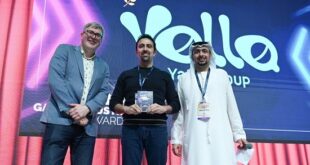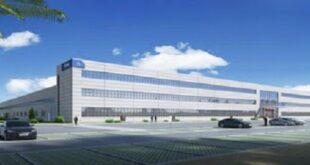Ericsson’s second round of climate targets toward Net Zero approved by Science Based Target initiative
Ericsson committed to reduce absolute scope 1, 2 and 3 greenhouse gas emissions by 90 percent
between 2020 levels and the end of 2040
Approved targets include halving value-chain emissions by 2030
Ericsson met and surpassed previous SBTi-approved 1.5°C-aligned targets (2016-2022)
Having met and surpassed its first science-based 1.5°C-aligned Paris Agreement greenhouse gas
emission reduction targets, Ericsson’s (NASDAQ: ERIC) second round of climate action targets toward
Net Zero have been approved by the Science Based Targets initiative (SBTi).
Ericsson has committed to reducing emissions across the company value chain by 90 percent by the
end of 2040 – from 2020 levels. The company is also committed to neutralizing the remaining 10
percent with approved carbon removals.
SBTi, a UN-backed global body that independently assesses companies’ emission reduction
commitments and targets in line with the latest climate science, conducted a rigorous assessment of
Ericsson’s targets against company initiatives, actions and emission data.
Ericsson was among the first large companies in the world to embrace and set climate action targets
in line with stringent criteria set by organizations such as the SBTi.
Ericsson’s second round targets have now been approved by the SBTi, including the company’s 2040 Net Zero target announced in 2021.
Heather Johnson, Head of Sustainability and Corporate Responsibility, Ericsson, says: “As a
technology leader with a strong foundation in research and development, we understand our climate
impacts and the importance of limiting global warming to 1.5°C. The SBTi approvals are a testament
to Ericsson’s science-based approach to climate action that will ultimately benefit the company, our
stakeholders and society.”
Treating climate action as an urgent strategic issue, Ericsson has prioritized achieving related targets
through actions within the company, the product portfolio and across the wider business value chain.
Terminology
These strategic priorities are also 1.5°C-aligned – the ambition that average global temperature
increases should not exceed preindustrial averages by more than 1.5°C to limit potentially irreversible
climate change consequences.
Emissions are categorized into three scopes under the Greenhouse Gas Protocol. In Ericsson terms,
Scope 1 comprises direct emissions from sources owned or controlled directly by Ericsson. Scope 2
covers indirect emissions where Ericsson has bought energy, such as the emissions related to the
electricity used in Ericsson premises. Scope 3 emissions are indirect emissions from sources not
owned or controlled by Ericsson but within the Ericsson value chain – including customers and the
supply chain.
Ericsson’s new targets follow the company’s achievements of SBTi-approved targets in a previous
round covering 2016 to 2022. These targets were to reduce scope 1, 2 and scope 3 categories
Business Travel and Downstream Transportation emissions by 35 percent as well as to achieve 35 percent energy savings in Ericsson Radio Systems compared to the legacy portfolio. Ericsson met and
surpassed these goals within the target timeframe, reducing them by 60 percent and 39 percent
respectively.
Approved in December 2023, and announced today, the Science Based Targets initiative (SBTi)
worded the approval of Ericsson’s new targets as:
Overall Net-Zero Target
Ericsson commits to reach net-zero greenhouse gas emissions across the value chain by FY2040 (end of 2040).
Near-Term Targets
Ericsson commits to reduce absolute scope 1, 2 and 3 GHG (greenhouse gas) emissions 50 percent
by FY2030 (end of 2030) from a FY2020 (end of 2020) base year. Within this target, Ericsson
commits to reduce absolute scope 1 and 2 GHG emissions 90.0 percent and absolute scope 3 GHG
emissions 50.0 percent within the same timeframe.
Long-Term Targets
Ericsson commits to reduce absolute scope 1, 2 and 3 GHG (greenhouse gas) emissions 90 percent
by FY2040 (end of 2040) from a FY2020 (end of 2020) base year.
More about SBTi
The Science Based Targets initiative is a global body enabling companies and financial institutions to
set ambitious emissions reduction targets in line with the latest climate science.
The SBTi’s goal is to accelerate businesses across the world to support the global economy to halve
emissions before 2030 and achieve net-zero before 2050.
In addition to the United Nations Global Compact, the SBTi collaboration includes CDP, the World
Resources Institute (WRI), the World Wide Fund for Nature (WWF) and one of the We Mean Business
Coalition commitments.
 التكنولوجيا وأخبارها بوابة مصر لأخبار تكنولوجيا المعلومات والإتصالات
التكنولوجيا وأخبارها بوابة مصر لأخبار تكنولوجيا المعلومات والإتصالات







